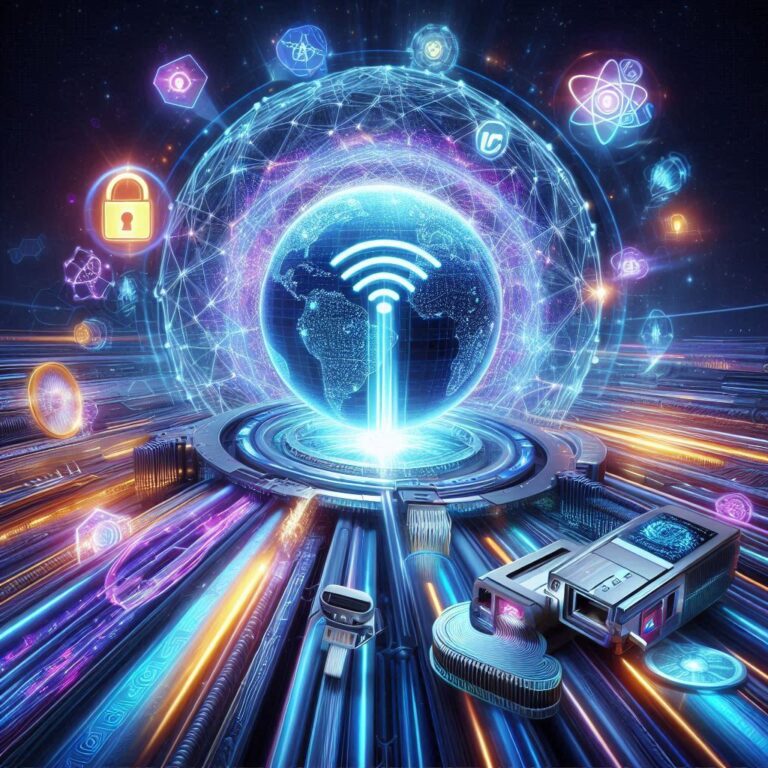
Quantum Physics Game Engine – The Next Frontier in Interactive Simulations
Quantum physics game engine technology is rapidly emerging as a revolutionary force in the interactive entertainment and simulation industries. The gaming world has always chased realism—physics, graphics, AI—but what happens when we push the boundary into quantum mechanics? Welcome to the future of development: the interactive quantum game engine, an idea that merges quantum computation with game improvement to simulate reality on a fundamental level. Whether you’re a developer, physicist, or tech fanatic, this guide dives deep into the opportunities, techniques, and realistic applications of building or using a quantum-powered game engine.
 🔍 What is a Quantum Physics Game Engine?
🔍 What is a Quantum Physics Game Engine?
A quantum physics game engine is a development platform designed to simulate environments, interactions, and objects in line with quantum mechanics principles. Unlike traditional engines like Unity or Unreal that depend on classical physics for in-game behavior, a quantum physics game engine incorporates quantum properties such as superposition, entanglement, and probabilistic outcomes.
“Quantum game engines don’t just replicate physics—they redefine how players interact with uncertainty, reality, and possibility.” — Dr. Mariah Jensen, Quantum Systems Engineer
🧠 Why Quantum Technology in Game Development Matters
Using quantum physics game engine technology is not only exciting—it represents a fundamental shift in how complex simulations and AI behaviors are modeled. Here’s why it’s important:
-
Realistic Simulation: Quantum models better reflect reality at microscopic scales.
-
Procedural Generation: Quantum randomness can revolutionize procedural content.
-
AI Evolution: Quantum-enhanced algorithms enable smarter, adaptive NPCs.
-
Educational Use: Teaching quantum concepts interactively through games.
-
Computational Power: Quantum computing can outperform classical in certain tasks.
By integrating these benefits, a quantum physics game engine unlocks a new frontier of interactivity and realism in simulation.
🔨 Core Components of a Quantum Computing Game Engine
Let’s explore the core building blocks of a quantum physics game engine:
| Component | Purpose |
|---|---|
| Quantum Simulator | Emulates qubits and gates on classical hardware (until real QPUs are viable) |
| Quantum State Engine | Tracks superposition, entanglement, collapse |
| Hybrid Runtime | Combines classical and quantum processing |
| API Layer | Interfaces with quantum SDKs (Qiskit, Cirq, Braket) |
| Visualization Engine | Converts quantum data into interactive 3D/2D visuals |
These elements enable a quantum physics game engine to simulate quantum phenomena in ways that classical engines cannot.
 🚀 Top Strategies for Developing Quantum Physics Game Engine
🚀 Top Strategies for Developing Quantum Physics Game Engine
Whether you’re building a new platform or integrating quantum features, these strategies will keep your quantum physics-based game engine on the leading edge.
1. Use Hybrid Quantum Physics Game Engine Models
Quantum computers aren’t mainstream yet, so start with hybrid approaches. Offload complex calculations (e.g., quantum entanglement or true randomness) to cloud-based QPUs like IBM Quantum or AWS Braket, while maintaining gameplay logic on classical hardware. This makes your quantum physics game engine more practical and scalable.
2. Leverage Quantum SDKs
Utilize powerful SDKs to build the quantum logic layer of your quantum physics game engine:
-
Qiskit (IBM): Best for designing and simulating quantum circuits.
-
Cirq (Google): Tailored for near-term quantum computing algorithms.
-
PennyLane: Perfect for integrating quantum machine learning into game AI.
3. Design Quantum-Friendly Game Logic
Traditional game logic is deterministic. In contrast, a quantum physics game engine thrives on uncertainty. Design gameplay around:
-
Probability-based outcomes
-
State collapses triggered by player observation
-
Quantum teleportation mechanics
-
Superposition-based puzzles (multiple outcomes until measured)
“In quantum gaming, the player’s choice doesn’t just determine outcome—it defines the reality they experience.” — Elliot Ross, Indie Quantum Game Developer
🎮 Game Design Tips for Quantum Worlds
Building gameplay inside a quantum physics game engine introduces unique mechanics and storytelling opportunities.
🎲 1. Introduce Quantum Randomness in Gameplay
Replace traditional RNGs with quantum random number generators (QRNGs). These generate entropy from real quantum phenomena—perfect for loot systems, procedural terrain, or unpredictable AI behavior.
🧩 2. Build Quantum Puzzle Systems
Allow players to engage directly with core quantum concepts. Educational titles built with a quantum physics game engine—such as Quantum Odyssey—use interactive puzzles to teach principles like entanglement and gate logic.
🌐 3. Create Multi-Outcome Scenarios
With quantum superposition, your quantum physics game engine can simulate multiple timelines. Let players “peek” into potential outcomes or even choose realities, inspired by Schrödinger’s cat or the many-worlds theory.
🧪 4. Gamify Quantum Experiments
Reimagine famous physics experiments in interactive form. Build a quantum physics game engine level around:
-
The double-slit experiment
-
Quantum tunneling
-
Bell’s Theorem and entanglement violations
 📈 Monetizing Quantum Physics Game Engine
📈 Monetizing Quantum Physics Game Engine
There are growing opportunities to monetize your quantum physics game engine or quantum-integrated games. Here’s a breakdown:
| Method | Estimated Earnings | Requirements |
|---|---|---|
| Quantum Game Licensing | $10K–$500K | Fully developed engine or toolkit |
| Educational Game Publishing | $5K–$100K/game | Partnerships with educational orgs |
| Cloud-Based Simulation API | $1K–$50K/month | Hosting & quantum backend integration |
| Asset & Plugin Sales | $500–$20K/month | Quantum modules for Unity/Unreal stores |
| Research Grants | Varies (up to $1M) | Collaboration with academic or quantum research centers |
With growing interest in quantum learning, education-based quantum physics game engine have strong commercial and grant potential.
🔧 Tools and Resources to Get Started
Kickstart your journey with these tools tailored for quantum physics game engine development:
| Tool/Resource | Description | Best For |
|---|---|---|
| IBM Qiskit | Open-source quantum SDK | Simulation, experimentation |
| AWS Braket | Cloud-based quantum service | Hybrid game mechanics |
| Unity + Python API | Combine traditional game engine with quantum logic | Cross-platform deployment |
| QCEngine (custom) | Lightweight quantum game logic framework | Open-source development |
| PennyLane | Quantum machine learning framework | AI in quantum environments |
📚 Best Practices for Quantum Game Development
To ensure your quantum physics game engine performs well and stays maintainable:
-
Start Simple: Visualize basic quantum circuits before complex systems.
-
Use Simulators First: Test using classical backends before real QPUs.
-
Target Education Early: Quantum physics is hard—games are a great learning medium.
-
Build a Community: Share progress and invite contributions.
-
Account for Latency: Cloud-based QPUs introduce lag; use async mechanics.
🧭 The Future of quantum physics game engine
The rise of quantum physics game engines will reshape simulation and interaction. In the near future, expect engines that:
-
Simulate infinite parallel environments via quantum state transitions.
-
Use quantum-enhanced AI agents with learning powered by qubit heuristics.
-
Offer true unpredictability, making each game session genuinely unique.
With the convergence of quantum computing, AI, and blockchain, the quantum physics game engine could power the next generation of immersive, decentralized, and adaptive digital realities.
✅ Conclusion: Take the Quantum Leap
If you’re a developer, physicist, or ahead-wondering entrepreneur, now could be the time to explore the capacity of a quantum Interactive game engine. The tools are to be had, the principles are maturing, and the demand is developing.
Start small—experiment with Qiskit or Cirq, model quantum logic into game puzzles, and explore hybrid rendering models. Join open-source communities and educational initiatives. Your contribution to quantum physics game engine development could shape the way the world plays, learns, and thinks about reality itself.
❓ FAQ: Quantum Physics Game Engine
Q1: Do I need a quantum computer to use a quantum physics game engine?
A: No. You can simulate quantum mechanics using SDKs like Qiskit or Cirq on classical computers.
Q2: What programming languages are best for quantum physics game engines?
A: Python for quantum logic, C++ or C# for game development, and integration via APIs.
Q3: Can quantum game engines run on mobile or consoles?
A: Yes, using hybrid models. Quantum logic is handled in the cloud, with local rendering.
Q4: Are there any working quantum physics game engines right now?
A: There are early prototypes, but most developers use custom logic layers built on Unity or Unreal.


